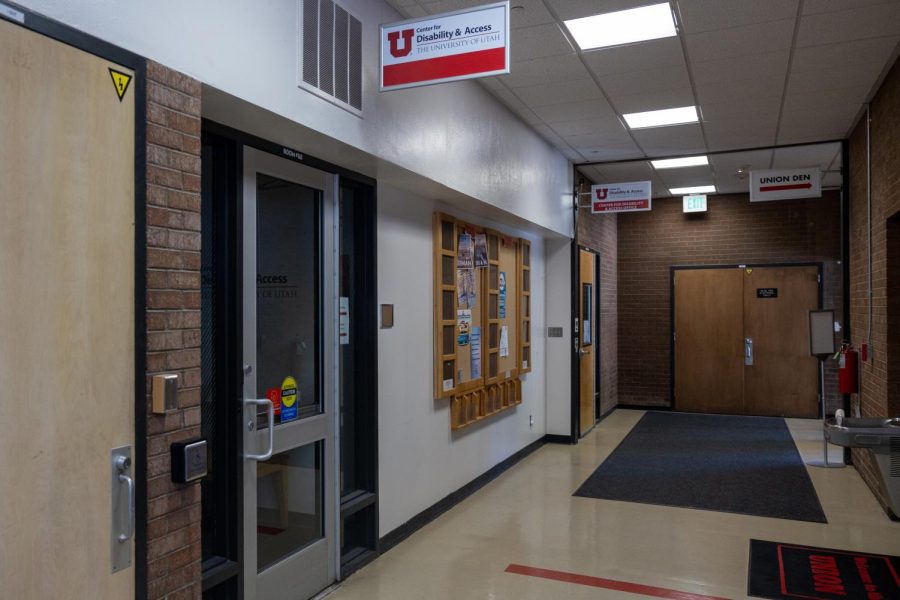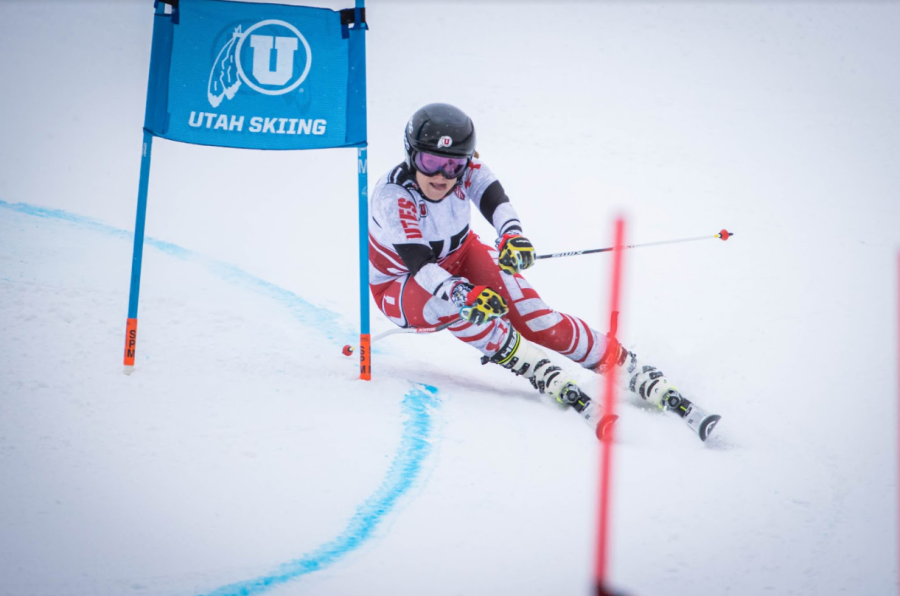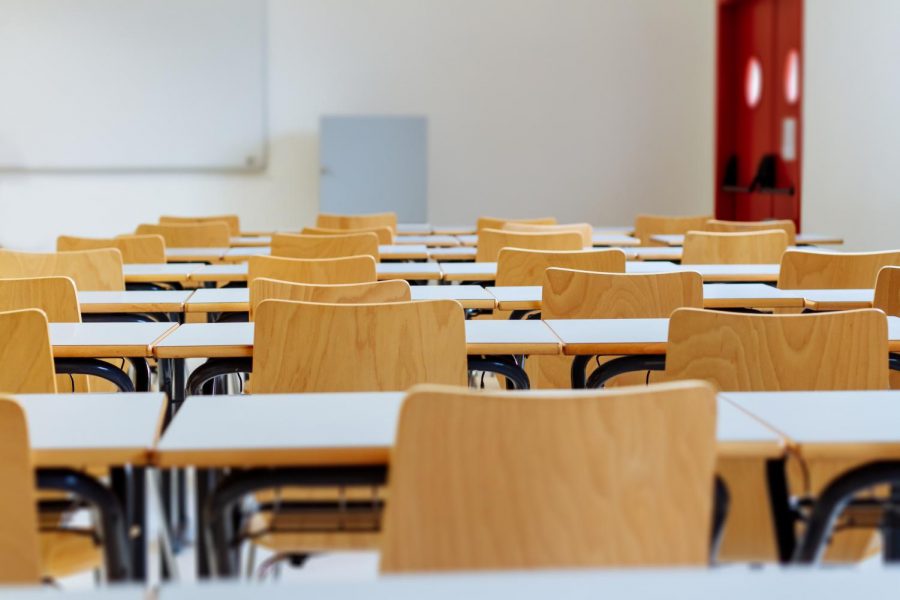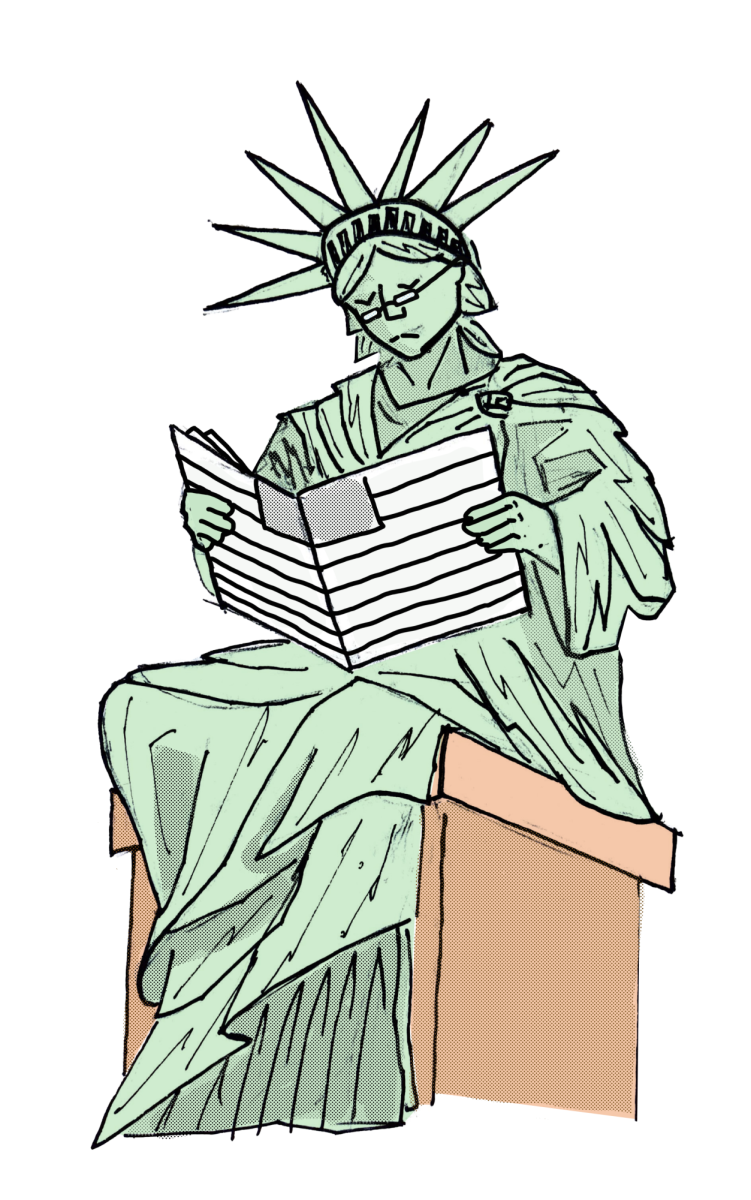Lien: The U Needs Accessible Disability Accommodations
The Center for Disability & Access at the University of Utah on the first floor of the A. Ray Olpin Union building on campus in Salt Lake City, Utah on July 10, 2022. (Photo by Jonathan Wang | The Daily Utah Chronicle)
September 1, 2022
As of 2020, students with disabilities make up 14.5% of the total U.S. student body, education week reports. Yet, according to the National School Board Association, there is a large disparity between graduations rates of students with disabilities as compared to the entire student body. This is troubling, as it means a substantial portion of disabled students don’t receive as much education as their able-bodied counterparts.
That’s not to say that nothing is being done about this gap.
30 years ago, the Americans with Disabilities Act began prohibiting discrimination against people with disabilities. Its protections extend to employment, transportation, public accommodations, communications and access to state and local government programs and services. However, more progress must be made, according to many college students with disabilities. Disabled students report that, while their college may comply with ADA, they really only accomplish the bare minimum.
The University of Utah’s disability program needs reformation to become truly accessible for disabled students. Further, we must change the public perception of accommodations, which further hinders students’ ability to succeed.
Accessibility
At the U, getting accommodations is an exhaustive process. It starts with an intake appointment and filling out paperwork, neither of which guarantee that you qualify. The process also requires extensive documentation, as well as many meetings to follow. The required documentation is particularly important but especially difficult to obtain. Each document must have official letterhead, include history and diagnoses as well as information on assessments and testing that has been done. This process may also include a psycho-educational evaluation.
Required documentation bars many from receiving accommodations, especially low-income students who cannot afford official evaluations of disabilities. For someone whose expensive health bills may have already landed them in debt, the addition of more expenses for the sake of documentation sounds like more trouble than its worth. Insurance can also complicate things. If students have parents who disbelieve their child’s condition or need for accommodations, they might be unable to use their health insurance to get documentation.
An anonymous anthropology student at the U noted that during the accommodations process, “there was just so much back and forth between departments,” and it was incredibly “annoying.”
“It’s a pain if I need to change or adjust the accommodations,” she said, relaying that the whole process took a long time.
Applying for accommodations sounds like a nightmare. I am undiagnosed but present heavily on the autistic spectrum. Even though accommodations would greatly benefit me, getting them remains virtually impossible in my case. Any official diagnosis is unavailable to me, thus prohibiting me from even applying for consideration.
Stigmatization
Less than one in 20 students with disabilities disclose their specific disability to postsecondary schools due to fear of stigmatization, according to the National Center for Learning Disabilities. About one-fifth of elementary and secondary students have a disability, but only about 6% of college students register with their universities as having one, states The Regulatory Review. This phenomenon comes from “special treatment stigma,” which results from people with disabilities receiving accommodations.
In a study from Randolph-Macron College, students reported feeling judged by their professors and peers, as well as worrying about having others doubt their ability to perform academically. In some situations, this fear is absolutely warranted, as some faculty members do believe students with disabilities get an unfair advantage, the Journal of Postsecondary Education and Disability reports.
While faculty members should not be told the specifics of a student’s disability, they sometimes coerce the student into revealing that information, wrote one student from Lesley University on Study Breaks. This creates a trend of doubting student needs and can foster an untrustworthy attitude toward faculty and staff.
Even if you get accommodations, it doesn’t guarantee that they’ll be accepted.
“I even had a professor try and argue that I didn’t need the accommodations and caused a huge mess to the point where I just agreed not to use accommodations in his class,” the anonymous student said.
The U’s accessibility process is arduous, and unfortunately impossible for many different students who could benefit from it. Stigmatization of disability and accommodations regularly convinces students out of reaching out for help and resources. This phenomenon contributes to a high number of students not graduating, and it is unacceptable. Everyone deserves the right to an education, regardless of their differences.










La Pulga Arrecha • Sep 6, 2022 at 7:21 pm
I absolutely agree with this article and want to add that even when you do get accommodations, the burden is still placed on the student to get professors to comply with the accommodations or coordinate things such as test accommodations. It has always seemed backwards to me, as someone who’s disability affects my ability to focus on, start, and finish tasks, that I am the one having to push along the convoluted process.
I will say though, the CDA office completely had my back when one of my professors was refusing to answer my emails about coordinating the accommodations and was asking me about the nature of my accommodations. They contacted the professor directly and reminded them they cannot ask me what my disability is and need to respond to my emails.